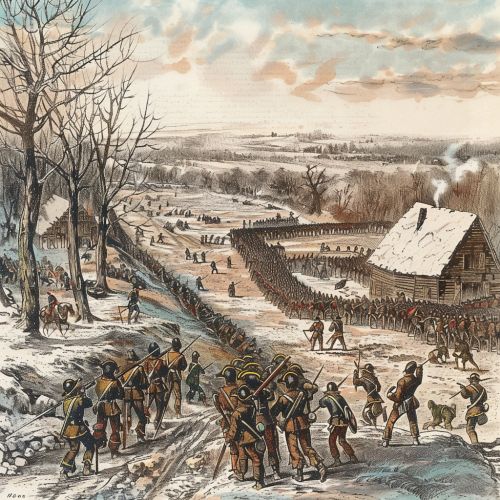Battle of Trenton
Prelude
The American Revolutionary War was a pivotal event in the history of the United States. The Battle of Trenton, fought on December 26, 1776, was a significant turning point in this war. This battle saw the American forces, led by General George Washington, launch a surprise attack on the Hessian forces stationed in Trenton, New Jersey.

Background
In the winter of 1776, the American forces were in a precarious position. They had suffered a series of defeats at the hands of the British and their Hessian allies, and morale was low. The Continental Army was stationed on the Pennsylvania side of the Delaware River, while the Hessians, German mercenaries hired by the British, were stationed in Trenton.
Planning the Attack
Washington knew that a victory was needed to boost the morale of his troops and the American public. He decided to launch a surprise attack on the Hessian forces in Trenton. The plan was to cross the Delaware River on Christmas night and attack the Hessians the next morning.
Crossing the Delaware
The crossing of the Delaware River was a challenging feat. The river was filled with ice and the weather was harsh. However, the American forces managed to cross the river and march towards Trenton. This event is famously depicted in the painting "Washington Crossing the Delaware" by Emanuel Leutze.
The Battle
The American forces launched their attack early in the morning of December 26. The Hessians were caught by surprise and were unable to mount an effective resistance. The battle lasted only a few hours and resulted in a decisive victory for the American forces.
Aftermath
The Battle of Trenton was a significant victory for the American forces. It boosted the morale of the troops and the American public, and it also helped to secure additional support from France. The battle marked a turning point in the Revolutionary War and set the stage for subsequent American victories.
Significance
The Battle of Trenton is considered one of the most important battles in the American Revolutionary War. It demonstrated the effectiveness of Washington's leadership and the resilience of the American forces. The battle also had a significant impact on the course of the war and the eventual American victory.
